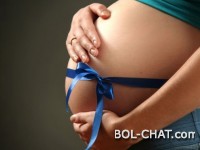BiH će imati najrigorozniji zakon u regiji: Što je sve zabranjeno parovima koji ne mogu imati djecu?
BiH ili nema zakona ili ima najrigorozniji
U eri 'bijele kuge', domaće zakonodavne vlasti čine sve kako bi 17 posto parova, koliko se procjenjuje da ih se trenutno bori za potomstvo, što teže ostvarili svoj san.
I dok su sve zemlje u regionu, koliko-toliko, zakonski regulisali medicinski potpomognutu oplodnju, u BiH do danas ne postoji nijedan zakon, ni na nivou države, ni na nivou entiteta, koji bi regulisao ovu oblast i pomogao parovima koji se bore da postanu roditelji.
Situacija bi se se uskoro trebala promijeniti u FBiH, gdje Nacrt zakona o liječenju neplodnosti biomedicinski potpomognutom oplodnjom čeka parlamentarnu proceduru. Međutim, ono što on donosi jesu brojne zabrane.
Tako nije dozvoljeno doniranje biološkog materijala od strane trećih osoba (heterologna oplodnja), što je jedina opcija za parove gdje su obje osobe neplodne, a zabranjeno je i surogat majčinstvo, te bilo kakvo doniranje tkiva polnih zametaka i slično.
Možda najgore od svega iz ovog Nacrta jesu kazne, ukoliko se ove zabrane prekrše. Parovi bi naime morali krivično odgovarati, što je, u situaciji u kojoj se oni nalaze, najgore što bi im se moglo dogoditi.
Tako bi se za kršenje ili neprovedbu ovih propisa predviđene kazne kretale u rasponu od 250 do 15.000 maraka, dok je za kršenje odredbi vezano za surogat majčinstvo predviđena kazna od tri do deset godina zatvora.
Za nepostojanje zakona odgovorna je, kao i uvijek, politika, zboz stalnog uplitanja, ali i vjerske zajednice.
Naime, još 2014. godine, Islamska zajednica BiH i Katolička crkva saopštile su da neće podržati ovaj zakon, a najveći problem im je predstavljalo upravo surogat majčinstvo, ali i davanje mogućnosti za vještačku oplodnju vanbračnim parovima. Srpska pravoslavna crkva ni tada, a ni sada nije javno iznijela nikakav stav.
Za sada u BiH stvari izgledaju ovako.
Klinike za medicinski potpomognutu oplodnju postoje i u Federaciji BiH i u RS-u. I pored nepostojanja zakona, u RS-u je to definisano sa nekoliko podzakonskih akata, ali nema zakona. Ipak, žene u RS imaju pravo na dva besplatna pokušaja, dok u FBiH nemaju ni jedan pokušaj besplatan. Cijena postupka iznosi oko 6.000 KM.
Iako pojam surogat majčinstva ne postoji u bh. zakonodavstvu, interes za ovakvu vrstu medicinski potpomognute oplodnje dosta je izražen, o čemu svjedoče i brojni zahtjevi koji su upućeni Centru za humanu reprodukciju i ginekološku endokrinologiju pri Kantonalnoj bolnici Zenica.
Prema riječima prim. dr. Ermina Čehića, mr. sci., načelnika Centra, i pored dosta zahtjeva koje su imali, Etičko vijeće bolnice je sve zahtjeve odbilo. “Već dosta vremena pokušavamo da dobijemo zakon o potpomognutoj oplodnji. Svi dosadašnji pokušaji su, nažalost, propali i šta će se desiti na ovom polju u skorije vrijeme teško je predvidjeti. Mišljenja sam da bi, obzirom da se brojni parovi bore protiv neplodnosti, surogat majčinstvo bilo vrlo dobar način kako bi dobili dugo željeno potomstvo, ali tada bi trebalo izmijeniti cijeli set zakona. Primjerice, trenutna zakonska regulativa predviđa da se majka odmah nakon poroda upiše u matičnu knjigu rođenih, pa bi u ovom slučaju zamjenska majka bila upisana kao prava majka”, pojašnjava Čehić i dodaje da je ovo polje, pored pravne, i velika moralna dilema za vjerske zajednice u našoj zemlji, te da je samim tim riječ o jako osjetljivom području sa kojim se, nažalost, nosi sve više parova u našoj zemlji.
U nepovoljnom položaju ostaće i u buduće i one žene i parovi kojima je, da bi dobili dijete, nužna donacija polnih ćelija. Tako će oni i dalje biti prinuđeni radi donacije odlaziti u Češku, Makedoniju, Mađarsku, gdje se u centrima za vantjelesnu oplodnju donorska jajna ćelija može kupiti za 3.400 eura, dok spermatozoidi koštaju oko 200 eura.
MAKEDONIJA
Od svih zemalja u regionu najdalje je u regulisanju ove oblasti otišla Makedonija. Ovdje je u julu ove godine rođena prva beba od surogat majke, gotovo tri godine nakon što je usvojen zakon koji dozvoljava surogat majčinstvo. Surogat majka bila je četrdesetčetvorogodišnja žena. Inače, prema Zakonu o surogat majčinstvu u Makedoniji, surogat majka može biti žena od 25 do 50 godina, koja ima bar jedno svoje djete, mora biti makedonska državljanka, dobrog psihičkog i opšteg zdravstvenog stanja.
Pravo na surogat majku ima bračni par, državljani Makedonije, u situacijama kada žena ima urođeni nedostatak materice ili anomalije na materici koje sprečavaju da ostane u drugom stanju.
Koncept je zasnovan na modelu koji predviđa isplatu određenih troškova surogat majke, a oni se isplaćuju na mjesečnom nivou i ne mogu biti veći od iznosa prosječne plate u Makedoniji.
- 22 Apr, 2018
- 1925 pregleda
- Bez komentara


